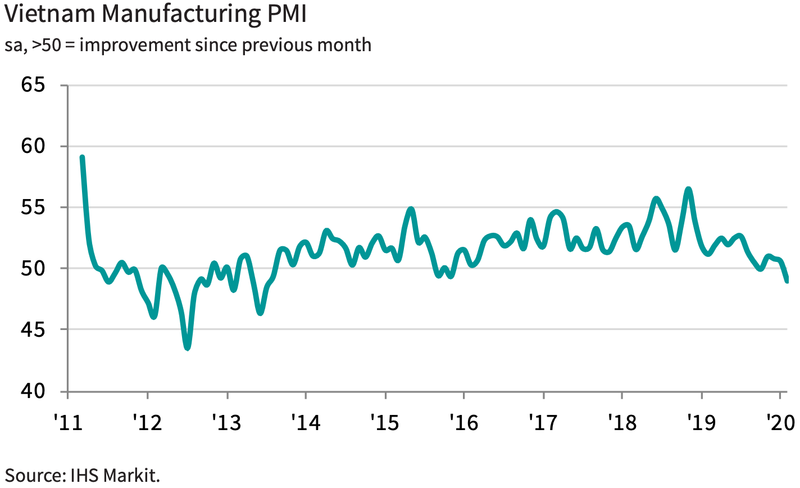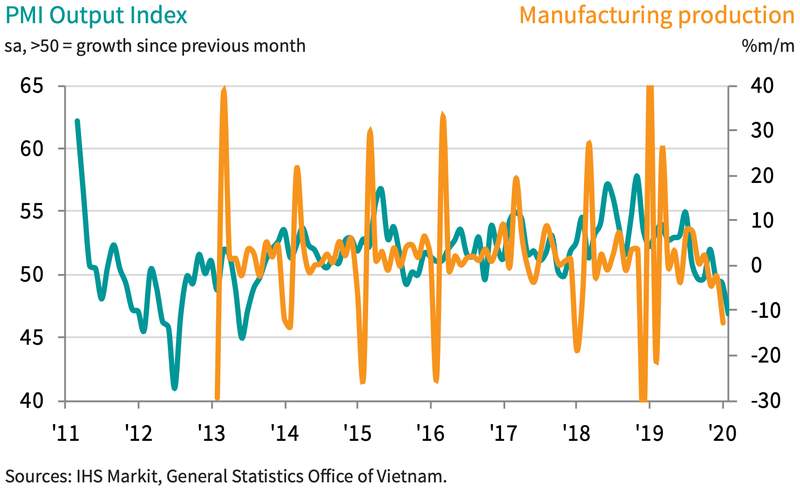Vietnam suffers first decline in 4 years in manufacturing activiy on Covid-19
Covid-19 has severely hampered the Vietnamese manufacturing sector in February, both on the demand and supply side.
The headline Nikkei Vietnam Manufacturing Purchasing Managers’ Index (PMI) fell below the 50 no-change mark in February, signaling a deterioration in business conditions and representing the first decline in over four years, according to Nikkei and IHS Markit.
A reading below the 50 neutral mark indicates no change from the previous month, while a reading below 50 indicates contractions and above 50 points to an expansion.
A key factor behind the deterioration in business conditions was a marked contraction in factory production during February. Panelists often noted that Covid-19 had caused disruption to output, which decreased at the quickest rate since June 2013.
The virus also had a negative impact on demand in February. New orders fell for the first time since November 2015, which was partially driven by a reduction in new export sales. Some survey respondents mentioned weaker order flows from China when explaining the fall in international business.
Softer demand conditions led manufacturing firms to cut their purchasing activity midway through the first quarter. The contraction was the first for over four years and historically marked. The result was driven by declines in both the consumer and intermediate goods sub-sectors.
Amid fears regarding the spread of Covid-19, employment in the Vietnamese manufacturing sector fell in February. The decrease was the first for four months and the fastest for over six-and-a-half years. Investment goods was the only monitored sub-sector to register an increase in staff numbers.
Covid-19 also adversely affected supply chains in the latest survey period. Vendor performance deteriorated to the greatest extent since June 2014. All three monitored sub-sectors saw slower delivery times.
Finally, firms were optimistic towards the 12-month business outlook, supported by expectations for an improvement in demand. However, the degree of confidence weakened to the lowest in series history, dampened by fears of a prolonged impact from Covid-19.
“Covid-19 has severely hampered the Vietnamese manufacturing sector in February, both on the demand and supply-side. Firstly, a combination of weaker export flows to China and rising domestic fears saw new business decline - the first reduction for over four years,” said Andrew Harker, associate director at IHS Markit, which compiles the survey.
“Meanwhile, firms struggled to obtain essential inputs from China amid the disruption, putting upward pressure on input prices. This, coupled with weaker demand and the subsequent reduction to output charges, placed pressure on profit margins,” stated Harker.














